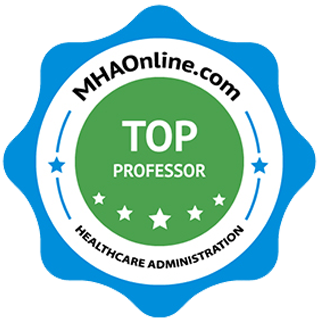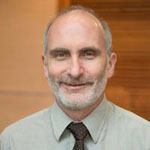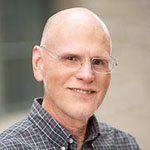10 Biotechnology and Bioenterprise Professors to Know

MHA Search
For the latest academic year, we have 170 schools in our MHAOnline.com database and those that advertise with us are labeled “sponsor”. When you click on a sponsoring school or program, or fill out a form to request information from a sponsoring school, we may earn a commission. View our advertising disclosure for more details.
Modern biology and biotechnology play a key role in technological advancements. They are used in cell and gene therapy, manufacturing pharmaceuticals, developing biomaterials, and processing fuels such as ethanol. Additionally, they contribute to research on cancer, infectious disease, and environmental factors.
Bachelor’s and master’s degree programs in biotechnology can open up lucrative opportunities for students in the field. They learn about molecular biology, genetics, cell biology, physiology, and biochemistry. They also conduct extensive lab research, going on to become engineers, scientists, and biotechnologists.
University faculty in biotechnology and bioenterprise conduct extensive research in the areas of biochemistry, biotechnology, bioprocessing, and cell biology. Four universities in particular—the Worcester Polytechnic Institute, the University of Maryland, Northwestern University, and the University of San Francisco—boast several standout professors.
This guide covers 10 exceptional biotechnology and bioenterprise professors who experts in their field.
Featured Professors in Biotechnology & Bioenterprise
-
 David S. Adams, PhD - Worcester Polytechnic Institute
David S. Adams, PhD - Worcester Polytechnic InstituteDr. David Adams is a biotechnology and biology professor at Worcester Polytechnic Institute. He teaches classes on cell biology, advanced cell biology, and virology. His research explores mouse models for Alzheimer's, molecular medicine, and neurotrophic factors for neural-regeneration and has been published in Brain Research, In Vitro Cellular & Developmental Biology-Plant, and the American Journal of Translational Research. He has won many accolades for his work, including the Chairman's Prize for Exemplary Faculty, the Trustees Award for Outstanding Advising, and the Trustees Award for Outstanding Teaching. Notably, he was also inducted in 2009 as an AAAS fellow. He completed a bachelor's in physiology at Oklahoma State University, a master's in biophysical sciences at the University of Houston, a doctorate in molecular biology at the University of Texas, and a post-doctorate in molecular biology at Rockefeller University.
-
 Kari L. Clase, PhD - Purdue University
Kari L. Clase, PhD - Purdue UniversityDr. Kari L. Clase serves as the director of the Biotechnology Innovation and Regulatory Science Center at Purdue University. She currently teaches multiple courses on biological design, bioinformatics, biotechnology, and drug discovery to engineers, scientists, and technologists. Her research efforts are focused on bioinformatics, biotechnology, and proteomics, and her work has been published in MBio, the Journal of Cell Biology, and the Journal of Virology. She also writes about cultured human cells and helping teachers learn and teach better. Dr. Clase has received many awards, such as the Entrepreneurial Leadership Academy Award and the Active Coating Studies Award. She completed her doctorate in biochemistry and molecular biology from Purdue University and bachelor's in biochemistry from Old Dominion University.
-
 Moira A. Gunn, PhD - University of San Francisco
Moira A. Gunn, PhD - University of San FranciscoDr. Moira A. Gunn is a professor of biotechnology and global information systems at the University of San Francisco, where she teaches courses on global information systems, graduate biotechnology sequence, and systems design and analysis. Her research covers biotechnology and its global impact and emerging global information systems and sustainability, and has been published in the Journal of Commercial Biotechnology, among others. She has also written about the strategic engagement of science-business media. She has received several awards, including the EE Times 2008 Educator of the Year award, as well as the Public Service Award for contributing to the public understanding of engineering and science. Dr. Gunn completed her doctorate in mechanical engineering and master's in computer science from Purdue University, and a bachelor's in computer science from the University of San Francisco.
-
 Michael Christopher Jewett, PhD - Northwestern University
Michael Christopher Jewett, PhD - Northwestern UniversityDr. Michael Jewett is the co-director of the Center for Synthetic Biology and an associate professor of chemical and biological engineering at Northwestern University. He teaches courses such as biochemical engineering, engineering design and communication, analysis of chemical process systems, principles in synthetic biology. Before he started teaching at Northwestern University, he worked at Harvard Medical School and Center for Microbial Biotechnology. His research explores topics on engineered ribosomes, therapeutics, protein synthesis, and cell-free synthetic biology. His work has been published in Metabolic Engineering, Nature Chemical Biology, and Biotechnology and Bioengineering. He has won the Camille Dreyfus Teacher-Scholar Award, the American Chemical Society Biological Technologies Division Young Investigator Award, and the Agilent Early Career Professor Award. Dr. Jewett completed his doctorate and masters from Stanford University, and a bachelor's from the University of California, Los Angeles—all in chemical engineering. He also completed a postdoctoral fellowship from the Technical University of Denmark in 2007, and from Harvard Medical School in 2009.
-
 Thomas Koval, PhD - John Hopkins University
Thomas Koval, PhD - John Hopkins UniversityDr. Thomas Koval is the program coordinator for the master's in biotechnology at John Hopkins University. He teaches courses on radiation biology and advanced cell biology, and he also oversees the independent project research course. He was previously a faculty member at Mayo Medical School, George Washington University, and Hahnemann Medical College. Dr. Koval has published his research in top national and international journals on insect cell culture, stress-inducible cellular processes, and cell and molecular biology, especially in the areas of cellular radiation damage or repair. He earned a bachelor's degree in biology from Pennsylvania State University and a doctorate in cell and molecular biology and radiation biology from Ohio State University. He also completed his postdoctoral fellowship in physiology and biophysics and bioengineering at the University of Illinois at Urbana–Champaign.
-
 Stephen Miller, PhD - University of Maryland, Baltimore County
Stephen Miller, PhD - University of Maryland, Baltimore CountyDr. Stephen Miller is an associate professor and program director of the graduate biotechnology program at the University of Maryland, Baltimore County. He teaches classes on molecular and cell biology. His research efforts explore mechanisms of cellular differentiation and their evolution using Volvox and related green algae, which has been published in prominent journals such as Biotechnology Advances, Algal Research, and Current Opinion in Plant Biology. Outside of his professorial duties, Dr. Miller also has 15 years of experience in administration. He served on the biological sciences graduate committee and was previously the graduate program director for the doctoral and master's programs in biology. He has a bachelor's degree from Case Western Reserve University, a doctorate from the Massachusetts Institute of Technology, and a postdoctoral fellowship from Washington University.
-
 William M. Miller, PhD - Northwestern University
William M. Miller, PhD - Northwestern UniversityDr. William M. Miller teaches courses on chemical and biological engineering at Northwestern University, specifically in process dynamics and control, advances in biotechnology, biochemical engineering, and engineering of chemical and biological processes. Before he joined Northwestern University, Dr. Miller worked at University of California and the Massachusetts Institute of Technology. His research foci include animals and human culture applications in medicine, tissue engineering, and biotechnology. Professor Miller is also a member of organizations such as the American Chemical Society, the American Institute of Chemical Engineers, and the American Institute of Medical and Biological Engineers. His research has appeared in prominent journals such as Biotechnology and Bioengineering, PLOS One, and the American Journal of Transplantation. Dr. Miller completed his doctorate at the University of California, his master's at the Massachusetts Institute of Technology, and bachelor's at Lehigh University—all in chemical engineering.
-
 Antonio Moreira, PhD - University of Maryland, Baltimore County
Antonio Moreira, PhD - University of Maryland, Baltimore CountyDr. Antonio Moreira is a professor of chemical and biochemical engineering at the University of Maryland, Baltimore County. Along with fulfilling his administrative responsibilities, he also teaches and researches topics such as regulatory science, bioprocessing, and engineering. He also presents short courses in biotechnology for industry and regulatory agencies. His research covers various aspects of bioprocess engineering such as using engineering principles and tools for establishing biologically-based processes. His work has appeared in prominent journals such as Biotechnology Progress and Biotechnology and Bioengineering. Dr. Moreira sits on the board of the ISPE Foundation and has received many awards, including the NATO Senior Fellowship and the James Agalloco Award from the Parenteral Drug Association. He has a bachelor's in chemical engineering from the University of Porto, a master's and doctorate in chemical and biochemical engineering from the University of Pennsylvania, and a post-doctoral fellowship from the University of Waterloo.
-
 Christina Tzagarakis-Foster, PhD - University of San Francisco
Christina Tzagarakis-Foster, PhD - University of San FranciscoDr. Christina Tzagarakis-Foster teaches cell physiology, general biology, and molecular medicine at the University of San Francisco. Before that, she taught at the Dominican University of California. Her research studies the aspects of the Dax-1 gene as well as the protein product of this gene. She has been published in prominent journals such as Alcohol and Alcoholism, Endocrinology, and the Journal of Biological Chemistry. She has also written about selective activation of estrogen, collagen production by hepatic lipocytes, and estrogen receptors. Dr. Tzagarakis-Foster's research has won her many awards such as the Arthur Furst Award for Outstanding Research Advancing, the Jastro Shields Award, and the Cowell Foundation Fellowship Award. She has a bachelor's in biology and biological sciences from the University of San Francisco, a doctorate in microbiology and molecular biology from the University of California, Davis, and a post-doctoral fellowship from the University of California, San Francisco.
-
 Pamela Weathers, PhD - Worcester Polytechnic Institute
Pamela Weathers, PhD - Worcester Polytechnic InstituteDr. Pamela Weathers is a professor of biology and biotechnology at Worcester Polytechnic Institute, where she teaches plant diversity, plant physiology, plant morphology and development, professional ethics in life science research, and advanced applied biology. Before she joined Worcester Polytechnic Institute, Dr. Weathers worked at Wellesley College, the College of the Holy Cross, and Michigan State University. Her research efforts explore algal biofuels, bioreactor development for differentiated tissues, differentiated plant tissues and the production of secondary metabolites (especially terpenoids), and improving bioprocesses for the production of secondary products from cultured plant tissues. Her research has appeared in prominent journals such as Vitro Cellular & Developmental Biology-Plant, Biotechnology Advances, and Engineering in Life Sciences. She is a member of the American Society of Plant Biologists and the Council for Frontiers of Knowledge. Dr. Weathers completed her doctorate in botany and plant pathology from Michigan State University and bachelor’s degree in biology from Marquette University.
Methodology
The following criteria were used to select professors for inclusion in this list:
- University affiliation: Professors must first be associated with an accredited university in the U.S. and be actively teaching.
- Publication: The professors have published extensively in peer-reviewed journals and delivered presentations at industry conferences.
- Institutional and peer recognition: They have been recognized for their excellence through awards, distinguished titles, notable grants, and research funding.
- Professional commitment: Outside of their teaching and research obligations, they have helped build curricula and programs, become members of professional organizations, and consulted for companies in the field.

